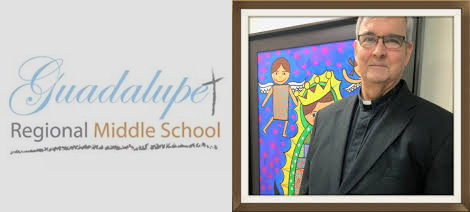Br. Arthur Williams, Guadalupe Regional Middle School Brownsville, Texas

I recently attended a meeting of the Texas chapter of the ACLU for local citizen and representatives interested in immigration issues. Present were many folks who have advocated for immigration issues and I was one of the newer folks present. The main thrust of the meeting was about the children who are removed from their parents after arrest due to entering the U.S. undocumented. Many are asylum seekers from Central America who are walking across authorized crossing points: using sidewalks and across bridges. They are taken into custody at the bridge and their children are taken from them at that time. Adults are taken to the local jail while their children are placed into the custody of the "Office of Refugee Resettlement" and then on to the Texas Department of Human Services and the foster care system. The legal aid people tell us once the children are in the system, it is very difficult for parents to track where their children are. Listening to the comments from people frequently dealing with these issues, I have come to understand children are removed to Seattle, Pennsylvania, and other centers in Texas. Parents facing deportation often have difficulty locating their children as the deportation date nears.
The facilities where children are brought are closed to outside observers, which is understandable as these facilities house minor children. The media has made mention of an old Walmart building here in Brownsville being used by Southwest Key (NGO recognized by U.N. Human Rights Council) to house some of these children (I used to shop there!) The building sits on the edge of a shopping area and the guards are very sensitive to unwanted visitors and order such off the property. I believe Senator Jeff Merkley from Oregon can attest to this. This building mainly houses young boys. Unofficially I have learned that the “rooms” are little more than quadrangles created by “open cyclone fencing” with four or five boys to a quad. I have seen pictures online and they seem to fit with the description of folks involved in the system. There seems to be little to no privacy in the building. While medical facilities and education are being minimally addressed, the facilities are overcrowded and inadequate to accommodate the large number of “clients" living there. An important theme within the group was concern about the psychological effect of the loss of parents that is placed upon these young boys. I must assume that child protective services is adequate to ensure the safety and well-being of these children without independent oversight. I hope that is so. I am sure others have read reports of expanding the facilities of the "Office of Refugee Resettlement" using old military bases in Texas and around the country. This form of “child care” seems to be a thriving business.
In conjunction with the ACLU for Texas, a local civic group is involved in monitoring happenings at the border. Two activities they are leading include: 1) encouraging volunteers to stand at the international bridge from Mexico to Texas to observe and record the activities of Border Patrol Agents, who are often seen challenging pedestrians crossing into the US. Secondly, the group is involved with observing sessions in 'magistrate court,” which includes hearing cases that process undocumented immigrants. These hearings take place in federal court where undocumented immigrants are ordered to be deported.
Advocates told us about the process:
Defendants are escorted into court as a group and the charges are filed and responses given as a group. These groups may be as large as 30 to 60 people at a time. All cases are processed simultaneously. Defendants are advised to plead "guilty" and it seems there are consequences for not doing so, but I would not know about this.
There are two local federal courts where this is occurring - Brownsville and McAllen. Volunteers are tasked with recording what was being said and by whom. Also to record that case file number and time and date. Problems here are the court officers deny entry because the court is 'full'. However these sessions are open to the public. It may take a little firmness and perhaps stubbornness to gain entry. We were told Sr. Phyllis D.C. made a stand on this issue and gained entry. Seems at present when she is able to attend that court officers leave her space! Activists at the meeting and legal folks told us that the presence of observers changes the ‘tone’.